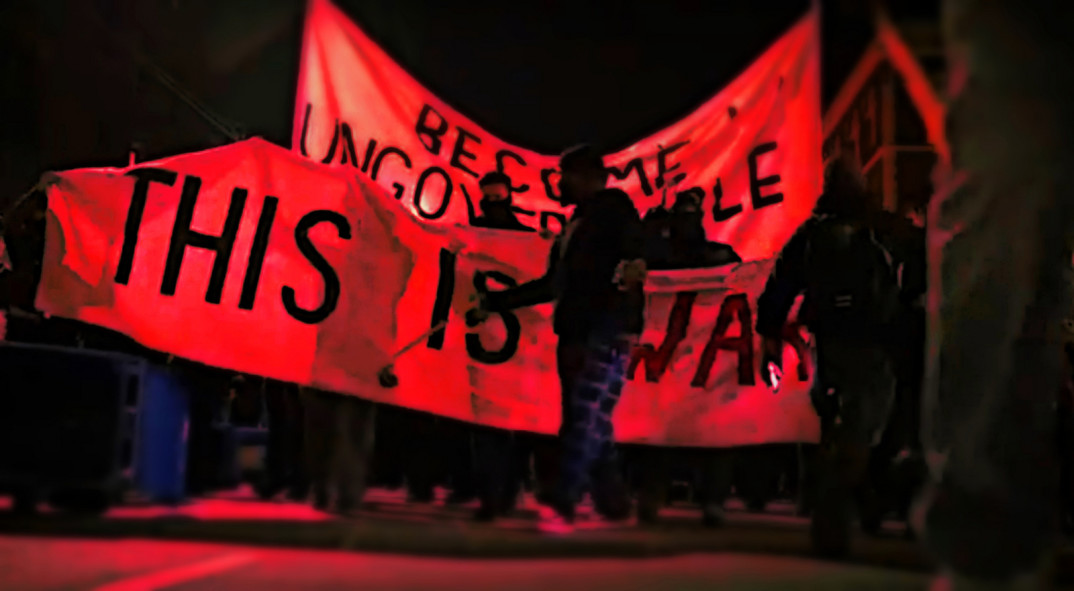The Berkeley Protests, Shock Jocks and Free Speech
On the evening of February 1st, 2017, protestors burst through lines of zip-tied metal fencing to flood a building at the University of California, Berkley. Some protesters wore masks, and others threw red paint on members of the College Republicans. Windows were smashed and fires were started. This chaos was caused by disapproval on the part of many Berkeley students to the invited speaking engagement of Milo Yiannopoulos, a controversial conservative commentator and technology editor for Breitbart.
Yiannopoulos became a public figure when he publicly expressed opinions on the topic of “Gamergate”—a controversy that, in part, concerns the proper role of feminism in video game design. He continued to attract public attention by making controversial claims about political ideologies and historically oppressed groups. At a march organized to protest rape culture, Yiannopoulos made an appearance holding a sign that read, “Rape Culture and Harry Potter: Both Fantasy.” Though a member of the LGBTQ community himself, he claims, “Gay rights have made us dumber. It’s time to get back in the closet.” In 2016, after the release of the female-led Ghostbusters movie, Yiannopoulos was permanently banned from Twitter for inciting racist attacks against actress Leslie Jones.
The issue of free speech on college campuses is a persistently hot topic, sizzling once again in light of Wednesday’s protest. All people, college students or not, have good reasons to take interest in how these debates are resolved.
It may seem that the only relevant question is whether Yiannopoulos has a right to free speech. If what we mean by “right” in this context is a legal right, the answer is pretty clear—he certainly does. All that entails, however, is that the government cannot restrict his speech based on the content of his message.
With the legal question resolved, we can turn to the moral issues. The first pertains to political philosophy; it is a question about how an ethical society should be constructed. The question is: do we have a moral obligation to uphold political systems that allow for free speech, no matter how unpopular the content may be? The ability to challenge governmental policies or the behavior of other individuals is crucial to our ability to bring about positive change. We aren’t always in the position to know who is right, so a free exchange of perspectives is crucial. In On Liberty, nineteenth century British philosopher John Stuart Mill argues for this position. He says, on the topic of banning free expression of opinion, “If the opinion is right, they are deprived of the opportunity of exchanging error for truth: if wrong, they lose, what is almost as great a benefit, the clearer perception and livelier impression of truth, produced by its collision with error.”
Of course, even if the construction of a just society requires granting free speech rights, it doesn’t follow that everything that a person might elect to say is morally right. For example, a person exercising their free speech is not morally blameless when they choose to say something cruel to someone else.
Less easy to resolve are issues having to do with the responsibilities of educational institutions. Does a university have a legal obligation to host any particular speaker on campus? The answer here is straightforward. No legal obligation is violated when a university declines to invite Peter Singer or Johnny Depp or Great Aunt Martha to speak. The right to free speech is not the right to have a voice in any forum whatsoever.
Legal issues aside, what moral obligations does a university have to represent a diverse set of views? It might be useful to first identify the function or purpose of a university to see how various policies on this issue might help or hinder that function. The goal of a university is to provide education to its students and, in various ways, the community in which it is housed as a whole. Central to that mission seems to be a commitment to both truth and justice.
On one hand, some argue that viewpoints should not be expressed that are contrary to the positions endorsed by the majority of members of the scientific community on a given issue. Those with these intuitions suggest that it is counterproductive to give a voice to people who deny climate change or who continue to believe that vaccines cause autism. Giving a voice in an educational climate to these types of positions legitimizes them and could potentially lead to devastating consequences for society. If we want people to stop polluting the environment and to vaccinate their children, we shouldn’t provide them with reasons not to do so.
On the other hand, a brief review of history reveals that received science is often wrong. Paradigm shifts occur, and the only way we can find the truth is ensure that there are spaces where views can be expressed that may be different from those held by the scientific community.
That said, both sides might even agree that a line needs to be drawn somewhere. Some positions have been discredited, or are simply too far fetched to be true. We aren’t obligated, for example to provide a forum for a member of The Flat Earth Society to express their views. Universities don’t need to invite representatives to express every crazy conspiracy theory.
A similar controversy is raging when it comes to issues of social justice, as the case of Milo Yiannopoulos highlights. One of the main points of contention is whether certain moral debates are still live. Reasonable people agree that the debate about whether or not slavery is permissible is settled. The reason Yiannopoulos appearances have been the subject of protest (not just at Berkeley, but at universities around the country) is because he gives voice to positions that are contrary to views that many believe have been similarly settled and should no longer be discussed.
Other parties to the debate object to the protest itself. If some Berkeley students disapprove of the message, they don’t have to attend the event, but they shouldn’t express dissatisfaction with the idea that views that differ from their own are being expressed.
In response to that argument, some point out that it seems inconsistent. One cannot simultaneously approve of the College Republicans’ choice of speaker on the basis of free speech considerations, while, at the same time objecting to protesters who are exercising that very right.
It is another matter, of course to object, not to the protest itself, but to the violence involved. The question of whether violent protest is ever warranted is a distinct debate, but violence certainly isn’t warranted in this case.





